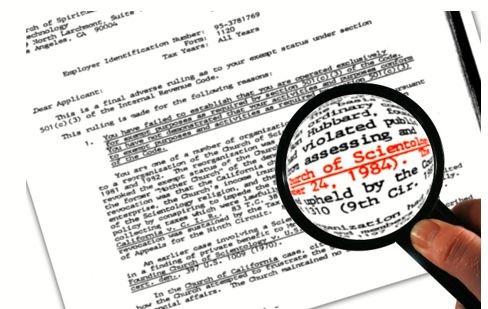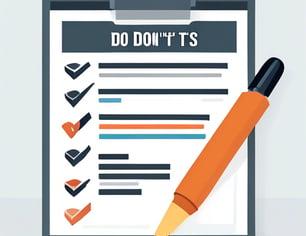When I Get a Letter from the IRS-What Does That Mean?
Receiving a letter from the IRS can be a cause for concern and confusion. It is important to understand what it means and how to respond appropriately. In this article, we will discuss some common scenarios that may lead to receiving a letter from the IRS and the steps you can take to address the situation.


Receiving a letter from the IRS can be a cause for concern and confusion. It is important to understand what it means and how to respond appropriately. In this article, we will discuss some common scenarios that may lead to receiving a letter from the IRS and the steps you can take to address the situation.
It can be an intimidating experience to receive a letter from the Internal Revenue Service (IRS). Whether you're an individual taxpayer or a business owner, the arrival of such correspondence can raise a lot of questions and concerns. In this article, we will demystify the situation and help you understand what receiving a letter from the IRS means.
Reviewing and Responding to the Letter
Receiving a letter from the IRS can be overwhelming, but it's important to stay calm and take the necessary steps to address the situation. The first step is to carefully read the letter and understand its purpose. Pay close attention to any deadlines or specific instructions provided.
Upon receiving a letter or notice from the IRS, it is crucial to carefully review its contents. The letter may indicate that the IRS reviewer may have missed seeing your correct information or that your tax return has been chosen for an additional investigation or audit. It may also include a "notice of proposed adjustment" in the case of a 1099 audit.
Regardless of the reason for the letter, it is important to keep the letter or notice and respond as soon as possible. Ignoring or delaying a response can lead to further complications and potential penalties.
Understanding different types of letters from the IRS
The IRS communicates with taxpayers for various reasons, and it's essential to understand the different types of letters they send. One common type of letter is the CP2000 notice, which is typically sent when the information reported on your tax return doesn't match the data the IRS has received from other sources. This notice provides an opportunity for you to review the discrepancies and respond with any necessary corrections.
Another type of letter you may receive is Letter 525, which is an initial contact notifying you of an audit. While this can be a daunting prospect, it's important to remember that not all audits result in penalties or additional taxes owed. The purpose of an audit is to ensure accuracy and compliance, and providing the requested documentation can often resolve the matter.
Common reasons for receiving a letter from the IRS
There are several common reasons why you may receive a letter from the IRS. One possibility is that there was a mathematical error on your tax return. The IRS has sophisticated software that checks for inconsistencies, and if an error is detected, they may send a letter requesting clarification or correction.
Another reason for receiving a letter could be that you failed to report all of your income. The IRS receives copies of your W-2s, 1099s, and other income forms, and if there is a discrepancy between what you reported and what they have on record, they may send a letter to address the issue.
Additionally, if you claimed certain deductions or credits that the IRS finds suspicious or inconsistent, they may request documentation to support your claims. This could include receipts, invoices, or other forms of proof.
Gathering Documentation
Next, gather all relevant documents and information related to the issue raised in the letter. This may include your tax return, supporting documentation, and any correspondence you've had with the IRS.
Once you have a clear understanding of the issue and have gathered the necessary documents, it's time to respond. Craft a well-written and concise response that addresses the specific concerns raised in the letter. Be sure to include any requested documentation and provide a clear explanation or resolution to the issue. If the letter from the IRS requests additional information or documentation, it is essential to gather and provide the requested items promptly. The IRS does not accept credit card receipts as valid documentation during an audit. Instead, it is advisable to take a picture of the original receipt using your phone and maintain a record of all receipts associated with your credit card.
If you are unsure about the specific information or documents being requested, consider reaching out to a tax professional or your tax preparer for guidance. They can help you understand the requirements and assist in preparing a comprehensive response.
Responding to the letter - do's and don'ts
When responding to a letter from the IRS, there are some important do's and don'ts to keep in mind. Firstly, do respond promptly. Ignoring the letter or delaying your response can lead to further complications and potential penalties.
Do provide clear and concise explanations. The IRS wants to understand your situation, so be sure to provide all relevant details, but avoid unnecessary or excessive information.
Don't argue or become confrontational in your response. It's important to maintain a polite and professional tone throughout your correspondence with the IRS. Remember, the goal is to resolve the issue, not escalate it.
Do keep copies of all your correspondence. This includes both the letter you received and your response. Having a paper trail can be helpful in case there are any further inquiries or disputes.
Seeking Professional Assistance
While it's possible to handle IRS letters on your own, seeking professional help can provide peace of mind and ensure that you're taking the best course of action. Tax professionals, such as certified public accountants (CPAs) enrolled agents or an Authorized e-file Provider (EROs Office), have expertise in dealing with the IRS and can guide you through the process.
If you are uncertain about how to proceed or need further clarification regarding the IRS letter, it is advisable to send a copy of the letter to your tax preparer and ask for an explanation. Tax professionals have the expertise to interpret IRS correspondence and can provide valuable guidance on how to address the situation.
It is important to note that receiving a letter from the IRS does not necessarily mean you have done something wrong. Sometimes, the letter may be a consequence of tax items from a prior year that impacted the current year's return. By seeking professional assistance, you can ensure that you are taking the appropriate steps to resolve any issues and comply with IRS requirements.
Understanding the potential consequences of IRS letters
Ignoring a letter from the IRS or failing to respond appropriately can have serious consequences. The IRS has the authority to assess penalties and interest on any taxes owed, and in some cases, they may initiate collection actions, such as placing a lien on your property or garnishing your wages.
It's important to address any issues raised in the letter promptly and accurately. By doing so, you can avoid further complications and potential financial consequences.
Preventing future IRS letters
Receiving a letter from the IRS can be a wake-up call to review your tax practices and make any necessary adjustments to prevent future issues. Here are some steps you can take to minimize the likelihood of receiving an IRS letter:
1. Double-check your tax return before filing. Ensure that all information is accurate and complete.
2. Keep thorough and organized records. This includes receipts, invoices, and any other supporting documentation for your tax deductions and credits.
3. Report all income accurately. Make sure to include income from all sources, even if you don't receive a tax form for it.
4. Stay informed about tax law changes. Tax laws can change from year to year, so it's important to stay updated and understand how they may affect your tax situation.
5. Consider consulting with a tax professional. A tax professional can provide guidance on tax planning strategies and help ensure you're meeting all your tax obligations.
Resources for further information and assistance with IRS letters
If you have questions or need assistance with a letter from the IRS, there are several resources available to help. The IRS website is a valuable source of information, providing answers to frequently asked questions and access to various online tools and resources.
You can also contact the IRS directly by phone or mail. The contact information is typically provided in the letter you receive. It's important to note that wait times may be longer during peak tax season, so patience may be required.
Additionally, if you're seeking professional help, consider reaching out to a reputable tax professional, such as a certified public accountant (CPA) or an enrolled agent. These professionals have the expertise and experience to assist you with your specific situation.
Conclusion: Dealing with IRS letters efficiently and effectively
Receiving a letter from the IRS can initially be a cause for concern, but it's important to approach the situation with a calm and proactive mindset. Understanding the purpose of the letter, gathering the necessary documentation, and taking the appropriate steps to address any issues can help resolve the matter efficiently and effectively navigate through the process and address any concerns raised by the IRS.
By staying informed, responding promptly, and seeking professional help when needed, you can navigate the process with confidence. Remember, the IRS is there to ensure compliance and accuracy, and by cooperating and providing the necessary information, you can achieve a favorable resolution.





















